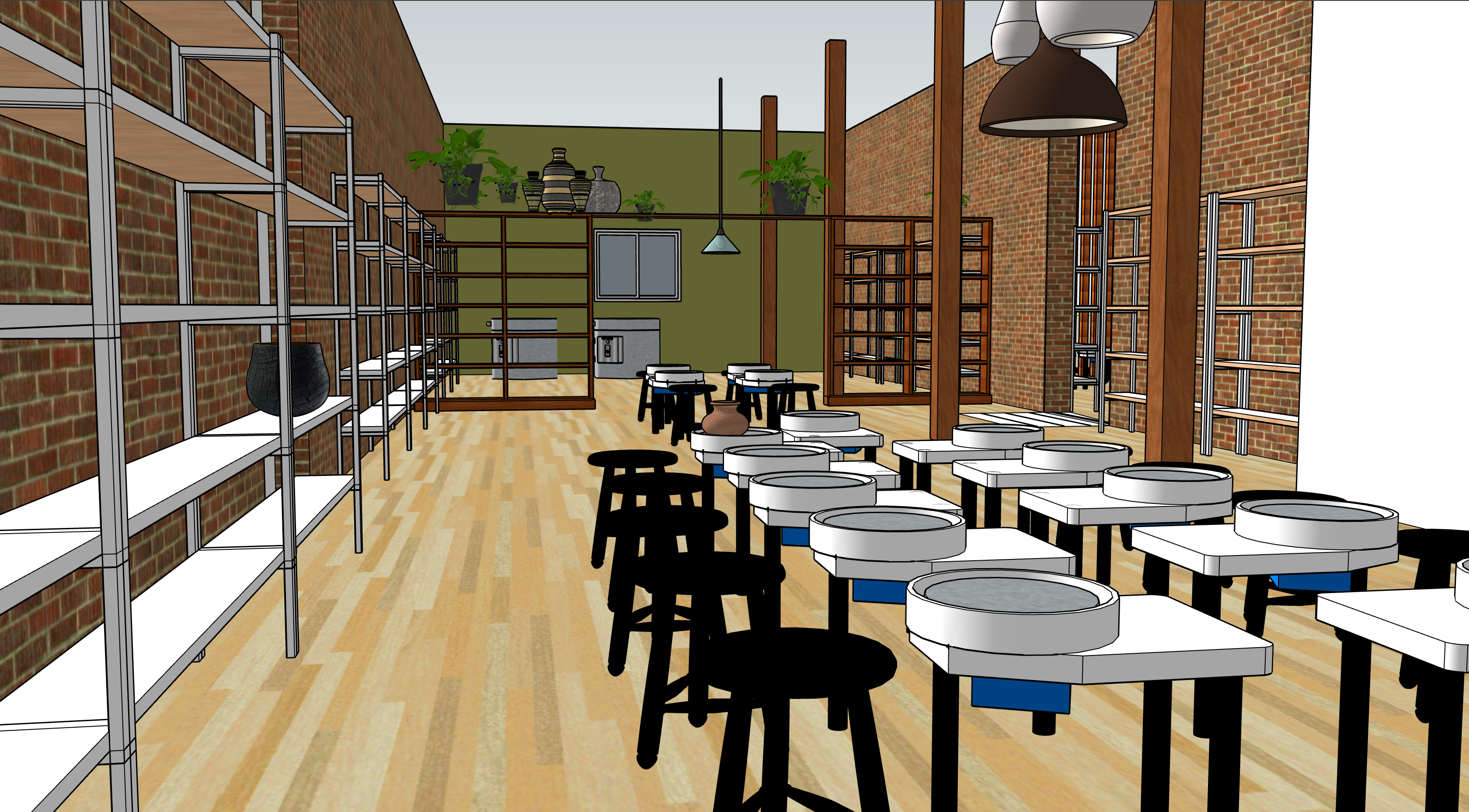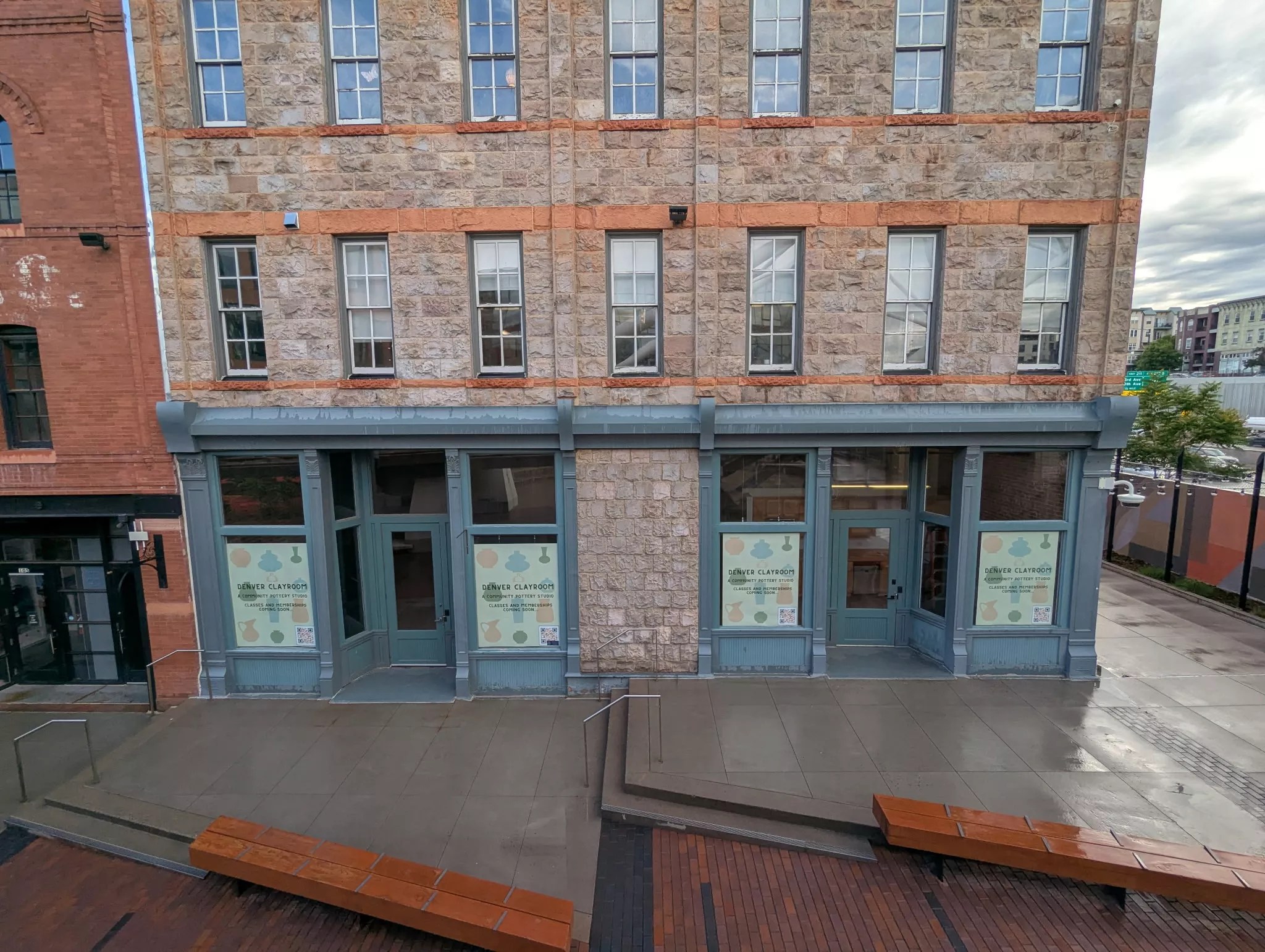
Denver Clayroom

Audio By Carbonatix
Platte Street is about to get its hands dirty. Denver Clayroom, a new pottery studio founded by engineer-turned-ceramicist Kara McDonough and her business partner Neil Gershgorn, is set to open by the end of September. The 8,000 square-foot studio is located just off the pedestrian bridge that connects Highland to downtown, at 1553 Platte Street.
“The space just had these amazing bones, exposed red brick, wood beams, it’s got this warm industrial vibe,” McDonough says. “We could immediately envision it as a creative hub.”
A Colorado native, McDonough studied engineering physics at the Colorado School of Mines before moving to San Francisco for a tech job. There, she took her first pottery class and became instantly hooked.
“It was such a great way to recharge outside of my engineering job,” she recalls. “I felt connected to the community in a way I hadn’t before.”
She eventually became a teacher and member at Clayroom SF, the studio her business partner Gershgorn founded. Years later, when McDonough moved back to Colorado, the pair started dreaming about bringing that Clayroom energy to Denver.
“I had these deep roots in Colorado and a connection to the community, and Neil had experience running successful studios. It just felt like a natural fit,” she continues.

A rendering of the workshop space.
Denver Clayroom
A Studio Built for All Skill Levels
Denver Clayroom’s layout includes two wheel-throwing classrooms, a hand-building classroom, and a dedicated members-only space. The upper 4,000 square feet will open first, with plans to expand into the basement for future programming.
Initial offerings will center around six-week classes for wheel throwing and hand building. Intro classes focus on studio basics like throwing, trimming, handles, and glazing, while hand-building students learn techniques like coiling and slab construction. Advanced classes will follow a more project-based structure, with opportunities to explore techniques like glaze making, raku firing and slip casting.
“There are a lot of beginner options in Denver, but not a ton of advanced classes,” McDonough says. “We want to be the place people come when they’re ready for the next challenge.”
The studio also plans to bring in visiting artists from across the country, tapping into Gershgorn’s network to host intensive workshops and demos.
Everything students need, from wheels to trimming tools to custom glazes to clays, will be provided. Members will have access to the space outside of class hours and can store their own tools if they choose to invest in a personal kit.
“We want to make it easy for people to start. You shouldn’t have to spend a bunch of money to find out if you love ceramics,” McDonough says.

Denver Clayroom is slated to open at 1553 Platte Street by the end of September.
Denver Clayroom
Creating a Community Space
“We wanted a space that reflected what people love about Denver – dogs, bikes, the mountains – and that’s Platte Street,” McDonough says. “You’re always seeing the same faces out walking or grabbing a beer. Even if people don’t end up taking a class, we hope they’ll know we’re here, maybe stop in to buy a handmade mug as a gift.”
The studio is designed with visibility and accessibility in mind. Front-facing gallery spaces will allow members to display and sell their work, no commissions taken. “We want this to be a low-barrier to entry space,” she says. “If someone takes their first class and wants to eventually sell a piece, we want to make that possible.”
The team is also planning community events like member spotlights, seasonal gallery nights and open studio hours that make the space feel welcoming even to those just passing through.
“Our goal is for people to walk by and think, ‘Wow, this is beautiful. I want to be part of this,'” she explains. “We want it to feel like a place you want to bring your friends and family, not just to show off your work, but to show off the space you made it in.”
Though construction is still underway, McDonough has already begun introducing herself to neighbors and nearby businesses. “Everyone’s been so welcoming. It’s already starting to feel like home,” she concludes.
Check denverclayroom.com for updates; follow Instagram @denverclayroom, where McDonough has been documenting the buildout in a series called “Clayroom Chronicles.”